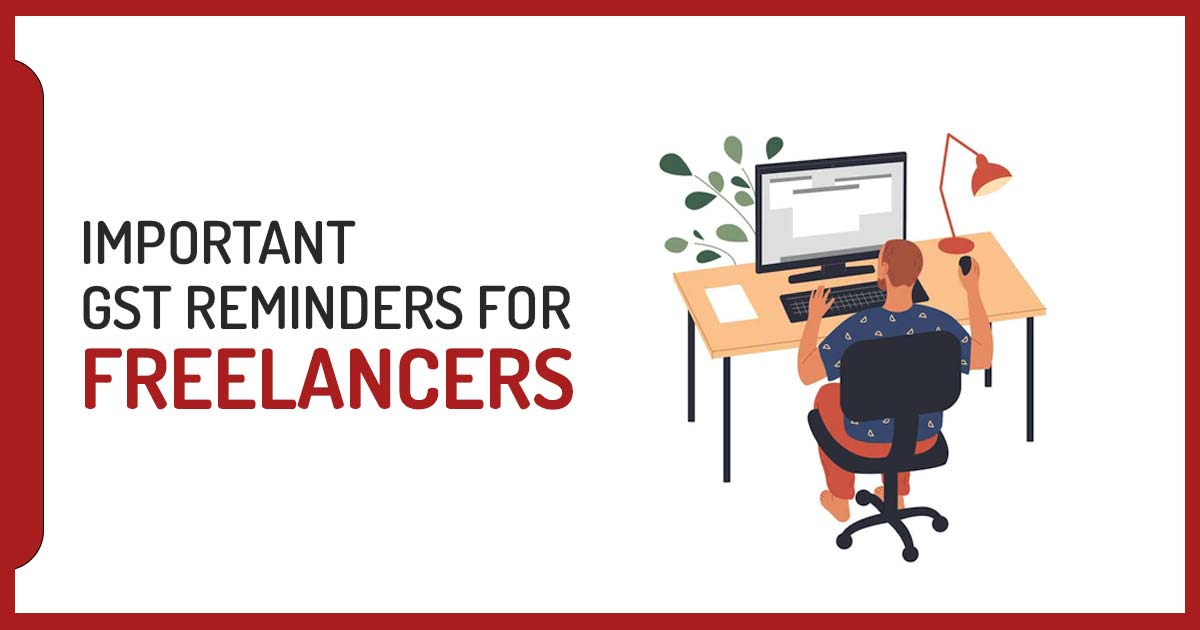
From the pandemic, people get much more affected. Working from home became a new normal for various companies, also the demand for freelancers gets raised. These freelancers are not only restricted to one company, they are indeed providing their services to the other companies.
Sometimes freelancers feel so restricted with the specific projects while they are known for flexibility, the outcome of this is they were looses to pay the proper attention to their finances. An essential part of freelancing work is the GST that freelancers are required to pay.
Freelancer Must Take Note of 3 Things About GST
Here, we are providing 3 major things about GST (Goods and Services Tax) for freelancers in India via this article.
GST Registration Limit
Salaried employers are not needed to furnish any GST. But, freelancers with a yearly turnover exceeding Rs 20 lakh comes beneath GST, and need to furnish an 18% GST towards the income made from freelancing services. If the annual turnover is Rs 10 lakh then the freelancers are required to pay the GST (particularly for the northeastern states). Qualified freelancers are required to enroll for GST.
You Can Enroll for GST
If the income earned from freelancing does not come beneath the GST ambit then there is no need to pay the GST. But a freelancer could choose to enroll beneath GST.
“If a freelancer voluntary obtains GST registration, he/she will have to abide by the provisions of the GST law. Also, he/she would be required to undertake all the related compliances and pay the applicable GST. However, obtaining voluntary registration could increase the overall compliance burden, a tax expert mentioned.”
GST enrollment is supportable when working with B2B customers as they would not work with non-registered customers. “Obtaining GST registration would also help to reduce the input GST costs which a person might incur on procurements, which would then be available as credit to such freelancers, said the tax expert.”
Services Furnished on Online Marketplaces
GST rules are applicable when the freelancer is working for the client directly or via a freelancing platform. “The liability to collect/ deposit the same with the IT department would remain with the ultimate service provider in both scenarios,” a tax expert commented.
Indeed, in the case of online marketplaces, it is essential to examine whether these marketplaces shall be entitled as e-commerce operators beneath GST law. In this case, there are some more compliances that are required to be performed by these marketplaces. The online marketplaces entitled as e-commerce operators shall be required to collect a tax collected at the source (TCS) of 1% from freelancers who used to supply the goods and services via their platform. Credit towards these TCS might also be available as per the conditions.